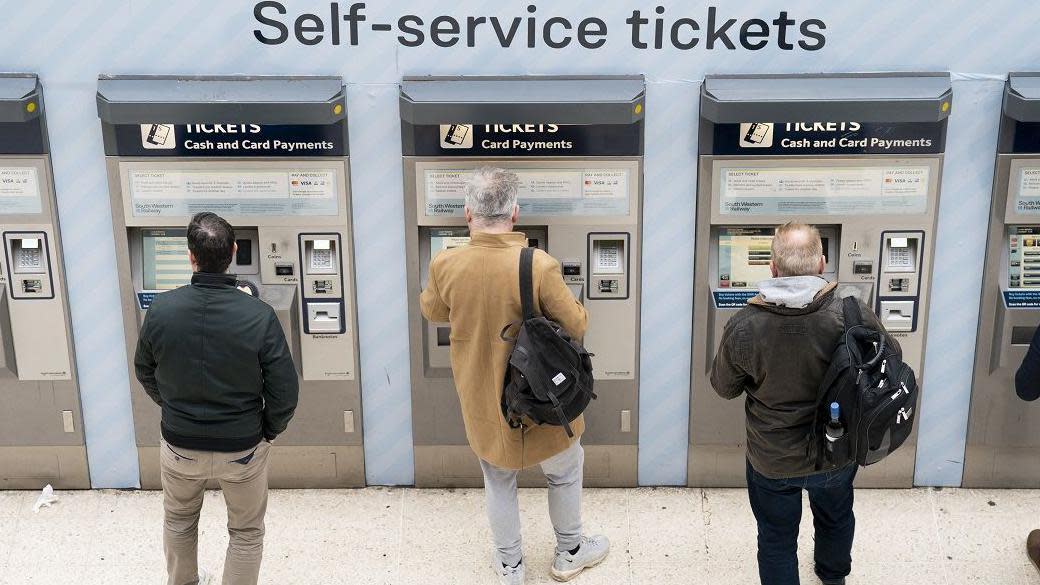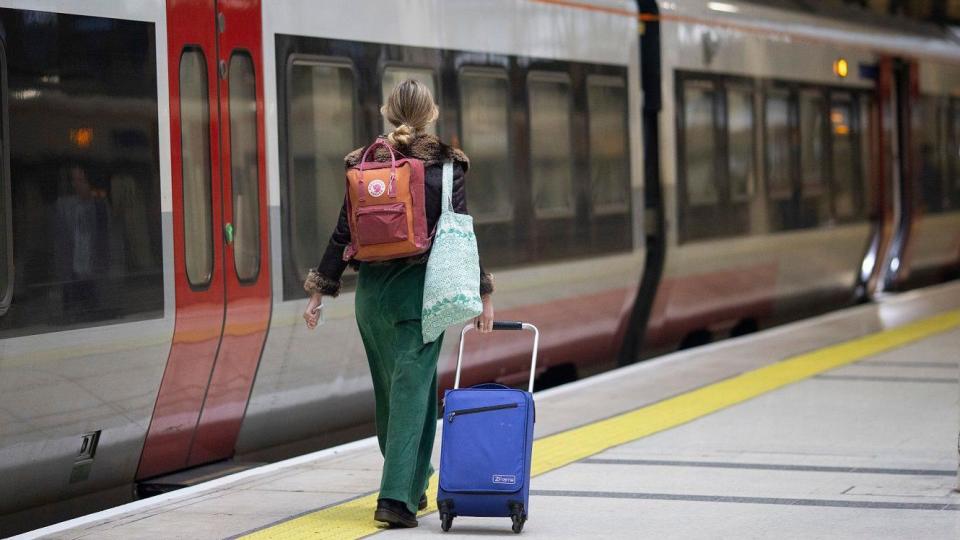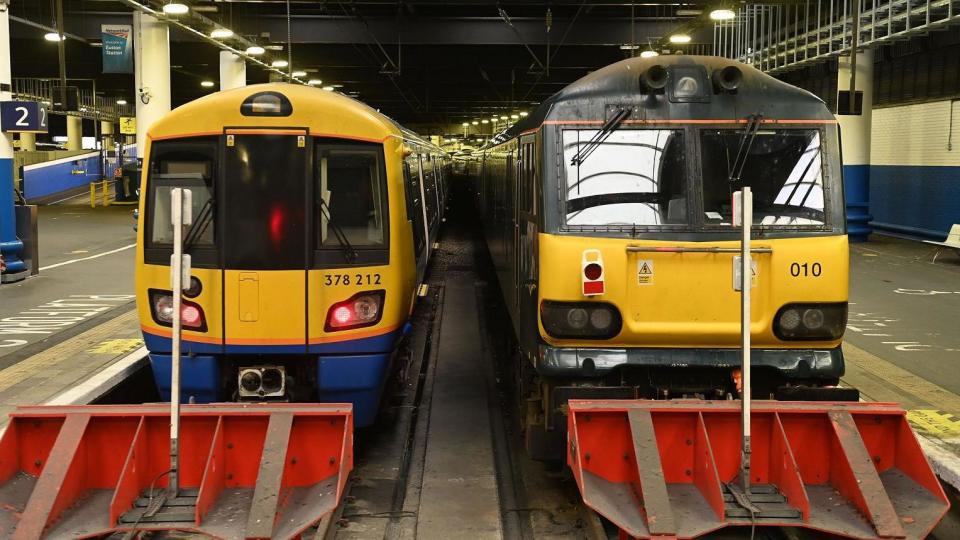Will Labour’s plan make train tickets cheaper?

The Labour Party has said it expects to renationalise most passenger rail services in England within five years, if it is elected.
But what will this mean for passengers, and when could it come into effect?
What will it mean for train tickets?
Shadow transport secretary Louise Haigh said she could not say that Labour would lower fares, but they would simplify them.
"We'll make them more accessible, more transparent and more trustworthy for passengers, " she said.
Ms Haigh also said Labour would deliver a "best fare guarantee", so people could be sure they are always paying the lowest fare for their journey.
However, railway specialist Tony Miles - who has covered the industry for over 40 years - said any savings were likely to be minimal because the private operators' profit margins are already so small, at an average of 12p for each passenger journey.
He argued this would mean Labour would only be able to pass on very small savings per journey.
What does nationalise mean?

From just after the Second World War until the 1990s the UK rail system was fully nationalised, with the government owning the rail networks and all of the trains.
The industry was privatised in the 1990s, with services run by a variety of train operating companies.
At the moment the infrastructure is managed by Network Rail, while passenger train services are run by individual operators.
However, there are degrees of nationalisation. During the pandemic, the government in effect took control of the railway, with most train companies in England moving onto contracts where they get a fixed fee to run services, and the taxpayer carries the financial risk.
The situation is different in Scotland and Wales, where passenger services are already run by the devolved governments. In Northern Ireland, the system is fully nationalised.
Under Labour's plans, a new arm's-length body, Great British Railways (GBR), would take over the service contracts currently held by private firms in England as they expire in the future.
However, GBR would continue to lease rolling stock from private firms, and there is no plan to nationalise rail freight companies.
Whether it will make the trains run better "comes down to how they’re going to fund things", says Peter Simmons, deputy editor at International Railway Journal.
"The issue under the old days of nationalisation was that the government of the day wasn’t prepared to fund things in a way that allowed major construction projects to move forward.”
Are other countries' trains under national control?
Luxembourg operates a fully state-run system where all train journeys are free, and train tickets in other European countries with more state control than the UK can be much cheaper.
However, those networks also receive lots of government investment, which can mean higher taxes.
Mr Miles argues the UK’s franchising system, whereby the government owns the network through National Rail and hands out operator contracts to private companies, was the “envy of Europe” before Covid hit.
He said passenger numbers have increased as a result of the franchise system, but added that the contracts written during Covid were done so “in a rush” and are “too generous”.
He pointed to Transport for London and the Manchester bus service as examples of where a state run franchising system to private contractors can work.
Mr Simmons says trains in the UK are "not as bad as people think".
"Sometimes the perception is that everywhere else is better, and that’s very much not true.”
However, he said other countries were “powering ahead” with long-term planning for major projects.
Will Labour’s plan really cost nothing?

A Labour government could wait until the current franchise contracts run out and take them on itself, as the government did during Covid. There would not necessarily be any upfront costs to do this.
However, doing so would also mean taking on the railway operators debts, leases, and liabilities, such as their pension fund pots and the lease contracts for the trains.
If Labour wanted to invest in the railway network or buy back the trains, that would cost money.
Labour says its plans would save the taxpayer £2.2bn a year, but Louise Haigh said she had no guarantee that all this money would be reinvested in the railways.
Andy Bagnall, the chief executive of Rail Partners, which represents private operators on the rail network, says nationalisation will lead to higher costs in the long run.
He says that without the commercial focus of private firms, "costs would creep up over time, revenue growth will be slower and the taxpayer is the one that loses out".
When could it actually come into effect?
If Labour were to win the general election - expected later this year - then "it could happen very quickly," says Mr Simmons, given the plan is to transfer train networks to public ownership as the current operator contracts begin to run out.
Some train operators are already under public control after being taken into the government’s Operator of Last Resort.
Many train operators' franchises come up for renewal in the next few years, but most contain some form of break clause, which means the government could take control earlier.
For example, Avanti West Coast's contract was renewed in October last year and runs for a maximum of nine years, which would take it to 2032 and beyond the next parliament.
However, the contract has a "core term" of three years, after which the government can terminate it at three months' notice.
Which rail operators are publicly or privately run?
UK private operators' contract expiry dates*
South Western - May 2025
Essex Thameside (c2c) - July 2025
East Anglia - September 2026
West Midlands - September 2026
Chiltern - December 2027
Thameslink, Southern and Great Northern - April 2028
Great Western - June 2028
East Midlands - October 2030
Cross Country (Arriva) - October 2031
West Coast - October 2032
*Does not include break or extension clauses
UK public operators
Caledonian Sleeper
East Coast (LNER)
NI Railways
Northern
ScotRail
South Eastern
TransPennine Express
Transport for Wales
Source: Rail Partners


